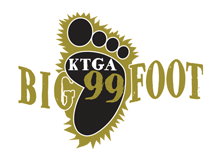JUNE 3, 2025 |
The Elk Mountain corner crossing case will likely make its way to the United States Supreme Court.
On Tuesday, May 27th, U.S. Supreme Court Justice Neil Gorsuch granted an extension requested by Iron Bar Holdings attorney Robert Reeves Anderson. Attorney Anderson filed the petition six days earlier, on May 21st, asking Justice Gorsuch to give him an extra 30 days to file a writ of certiorari, or a request for a higher court to review a lower court’s decision.
Justice Gorsuch granted the petition, extending the deadline to file the writ from June 16th to July 16th.
The case centers around a 2021 legal dispute between Iron Bar Holdings LLC, owned by Fred Eshelman, and four Missouri elk hunters who used corner crossing to move between parcels of public land on Elk Mountain. Eshelman contends that the hunters trespassed on the airspace over his land while crossing between the corners.
This past March, the U.S. 10th Circuit Court of Appeals ruled in favor of the hunters, citing the Unlawful Inclosures Act of 1885, which prevents landowners from obstructing access to public lands.
In his petition for extension, Eshelman’s attorney, Robert Reeves Anderson, wrote that moving diagonally from the corner of one public parcel in the checkerboard to another was considered unlawful trespass through the private landowner’s property for over half a century. Anderson added that by ruling in favor of the hunters, the lower courts had upset that precedent.
Anderson’s petition claims that in 2020 and 2021, Bradley Cape, Zachary Smith, Phillip Yeomans, and John Slowensky conducted hunting trips on Elk Mountain land accessible only by trespassing over Iron Bar’s property. Anderson claims that on both trips, the hunters ignored “no trespassing” signs and corner-crossed at several intersections of public and privately owned land.
After the hunters disregarded repeated requests to leave, Iron Bar sued the hunters for civil trespass, seeking a declaratory judgment that cutting across ranches at the corners of federal land parcels was unlawful. The ranch sought a court order restraining the defendants from trespassing.
The matter was originally heard in Carbon County District Court, where Judge Dawnessa Snyder ruled in favor of the hunters.
Eshelman appealed the ruling to the U.S. 10th Circuit Court of Appeals, which upheld the decision by the lower court. Attorney Anderson wrote in his extension petition that the 10th Circuit Court agreed the hunters had trespassed on Eshelman’s property under Wyoming law. However, the court noted that the 1885 Unlawful Inclosures Act preempted Wyoming law and prevented Eshelman from stopping people from using his Elk Mountain ranch to access the connected public land.
Attorney Anderson wrote that the case has the potential to impact a substantial portion of the approximately 300 million acres of checkerboard land and its landowners across the American West.
The attorney added that the case will allow the US Supreme Court to clarify the scope of the Unlawful Inclosures Act and its restrictions, if any, on a landowner’s right to exclude trespassers.
Attorney Anderson concluded his petition by requesting a 30-day extension, stating that the additional time would allow him to properly prepare his writ of certiorari. The application was granted by Supreme Court Justice Neil Gorsuch, who extended the filing deadline from June 16th to July 16th.











